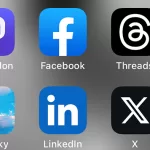Unlike many tech journalists (and many journalists in general, it seems) I’m enjoying Mastodon a lot more than Twitter right now. Here’s why.
Twitter has, to the surprise of very few, been on a rocky path of late.
Depending on your viewpoint (and to a certain extent, your politics) much of that blame can be laid at the feet of Elon Musk. I’ve got little time for the man, but I know even just expressing that will probably have the Musk rabid fans coming after me with blood in their eyes.
Sure, whatever, he clearly needs your validation. Poor boy’s ego might deflate a little, or something. How tragic that would be.
There have been various alternative near-real-time social media platforms pitched as a “Twitter replacement”, or in some more hyperbolic terms, “Twitter killers”, but few that have generated quite as many column inches as Mastodon.
So, being the tech journalist type that I am with an interest in tech (and an admitted interest of trying in some ways to keep on top of tech trends), I’ve been active on Mastodon for some time now.
Want to follow me on Mastodon? You could search for me (and that should work) but if you prefer the direct link style, here you go.
Many on Mastodon have switched there, swearing off Twitter forever, and that’s a perfectly fine stance to take. In the tech journalism space, it’s been a bit more mixed. A little while ago, I had a tech journalist colleague ask me if I was still on Mastodon.
Like me, they’d tried it, set up an account and then either lost interest or found little engagement in the way they were used to on Twitter.
I’ve also seen others (including a few that I’d call a stretch to apply the label “journalist” to, but Australian libel laws mean that I won’t expand on that thought here) decry Mastodon as a “ghost town” or a “waste of time”.
It’s pretty easy also to write up a “Why Mastodon is failing to kill Twitter” headline and wait for the clicks to roll in.
Still, I’m on both… for slightly different reasons. And I think I get why so many bounce off Mastodon so hard if Twitter’s what they’re used to.
Mastodon isn’t Twitter
This feels obvious, but it isn’t just a matter of different icons or calling what you post a “tweet” or a “toot”. There’s some different philosophical ideologies at play here, and they do play out in how each presents the feed that you see.
Mastodon isn’t algorithmically driven beyond any algorithms you build yourself. That means you’re not profiled there, and your feed (at first) is only for the people you directly find and follow. It’s a model that encourages hashtags as (for now) the best way to find particular specialist interests, as otherwise you’ll just see the toots of those you follow. No “For You”, little in the way of “Trending” and a whole heaping lot less of algorithmically-driven outrage fuel.
That’s the ideological difference. It’s 100% not just on Musk, by the way. Twitter’s been that way for ages, and I can absolutely see why that appeals to some journalists. It’s a lot easier to drive larger scale engagement on Twitter, especially through outrage, because the platform rewards that content richly.
Because the Mastodon equivalent of retweeting (“Boosting”) is human-driven and for now there’s no quoting, outrage travels less distance, if at all. I find that very refreshing, not to mention significantly less exhausting.
Mastodon has a stronger focus on people
I honestly think this is true, and I’ll point out just two distinct areas of difference that makes Mastodon a significantly less hostile place by design.
On Twitter, if I want to raise me some outrage, I could go on a spray about… well, anything, and it’s largely just going to appear in your feed. Or the feed of someone who holds diametrically opposing views, because again, the algorithm loves it some outrage.
On Mastodon, by design and by a certain level of social pressure, there’s a distinct function for content warnings. Click a button, describe why the content might be confronting for someone and it’ll still get fed out, but with that content warning as the only thing that’s first seen. Don’t want to see discussions on war, politics or toast? If you’ve content warned that post, then your audience can see that.
It’s a mature way of dealing with this kind of content that has a high degree of inbuilt sensitivity. I especially like that replies to your content warned material still carries the original tag.
Do I content warn everything on fear of causing offence? No, I don’t, but then it’s also a tool that (I think) makes you stop and think about what it is that you’re posting. Again, a lot of social media (not just Twitter, but it’s the obvious candidate here) is built on that kind of outrage and quick angry responses. Just the action of putting a content warning label may help in having more nuanced and considerate responses.
Reasoned discussion… on the Internet. What a wild idea!
The other people-centric aspect of Mastodon that I like is the way that you’re encouraged to apply descriptions to images, so that users with visual acuity issues can still take in the point of that image, whatever it is. Again, a small but very people-centric step.
But it’s also one that makes you consider those images, their impact and what it is you’re trying to say. Again, I think that fosters more thoughtful postings, and better discourse too.
If you like Mastodon so much, why don’t you marry it — or at least divorce Twitter?
There is a strong contingent on Mastodon who are all for the death of Twitter. I think I’ve made my opinion of Elon Musk all too well known by now, so why am I still using Twitter as well?
There’s a couple of reasons. Firstly, as a working tech journo I do need to keep on top of what’s happening with the service — including the wacky bugs, and Elon’s many weird backflips — we had a great chat with the one and only Stilgherrian on a recent ep of Vertical Hold about this — so to an extent there’s a work requirement.
I’m also a freelance tech journo and writer, and the practical reality for now is that while I’m having more fun engaging with people on Mastodon, I have a much larger following on Twitter, including in that professional capacity.
As a freelancer, nobody’s going to promote my work — including articles like this, the Vertical Hold Podcast or the video work I’m doing on YouTube — but me. Twitter remains a somewhat viable medium for doing that, as well as (on a smaller scale) for interacting with a few select people who aren’t on Mastodon, or are unlikely to ever be.
Still, I’m at a crossroads. If you want to see me largely promote my work, sure, I’m on Twitter. See you there. A bit. But not as much as I used to by a very wide margin.
If you want more of the actual me, including bonus cat pictures, musings on everything from running to professional wrestling and (indeed) some of that promotion of my work or the interesting work of others, that’s over on Mastodon. You can find me there pretty easily too.
Fun fact: The lead image was AI generated. Turns out even algorithms don’t understand Mastodons.




